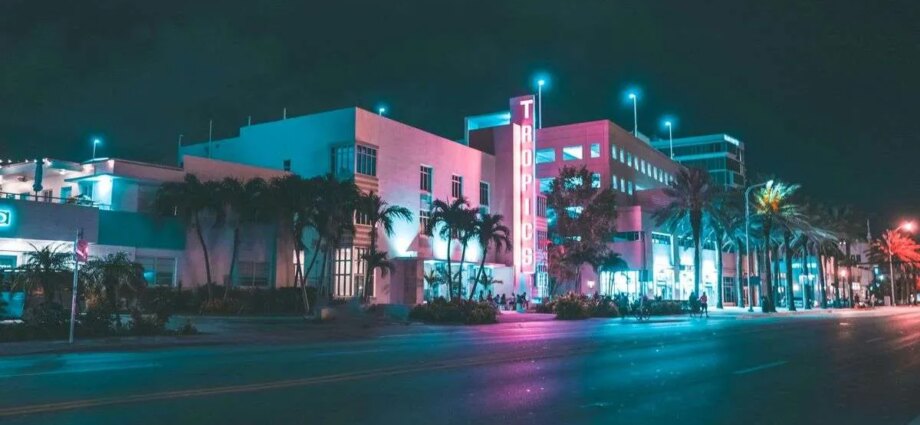
Photo Credit: Ryan Spencer
Latin music has evolved from a niche cultural genre into one of the most dominant powerhouse forces in the global music industry today. During Billboard Latin Music Week 2025 in Miami, industry leaders and Latin legends alike reflected on how the genre’s rapid ascent continues reshaping culture, technology, and the music business worldwide.
This article was created in collaboration with DMN partner Open On Sunday.
“Latin music isn’t just having a moment—it’s having a movement,” Billboard CEO Mike Van told the crowd gathered for Billboard’s Latin Music week in Miami this past week. Van spoke about Latin music’s sustained growth and its expanding role in the global music marketplace. “We’re ensuring that Latin artists not only reach massive audiences but also capture the value that their music brings,” Van continued.
Van also spoke about how technology remains central to the evolution of Latin music and that it continues to level the playing field, “letting an artist from Medellin or San Juan compete globally in real-time” with other more established artists from other genres.
Speaking about the influence of Latin music on today’s culture, Van confirmed that the younger generations are embracing Latin artists at unheard of rates. “It’s continuing to be very influential, particularly with younger generations like Gen Z and Gen Alpha,” Van confirms.
“Take Karol G for example, she’s headlining the third night at Coachella, and they already sold out completely. When you see certain Latin artists make it big, and when you see that kind of demand against Latin music that crosses over to audiences that don’t speak Spanish, that’s when you know [the genre] is absolutely huge.”
At the same event, Colombian-American artist Kali Uchis discussed her bilingual artistry and genre-bending success. The singer spoke in conversation with Billboard associate editor Isabela Raygoza and reflected on her creative duality and how it has impacted her career thus far. “I make music in both English and Spanish because those are both sides of me,” the singer stated.
She also spoke about creating “After the Storm” with Tyler, the Creator and Bootsy Collins, offering a glimpse into her collaborative process. “I once mentioned that I wanted to work with Bootsy,” Uchis recalls. “And then one day he invited me to spend time with his family, and we made several songs together—including ‘After the Storm.’”
Later, the stage turned electric as Daddy Yankee made his first public appearance in three years, engaging in a reflective question and answers session with Billboard’s Leila Cobo. Speaking about making music that resonates with people across languages, Daddy Yankee shared: “‘Sonriele’ resonated in people’s hearts—it’s like medicine, it’s about celebrating life. Every day we have an opportunity. With ‘Lamento en baile,’ my father taught me to turn my sadness into celebration. God turned my sorrow into dance,” the Puerto Rican singer told the audience.
“I’ve always had faith since I was a child. At ten years old, I would go to church alone. I feel that God has been working with me since I was little. I know that one day I will see my father face to face. The word says, ‘what did you do with the talents I gave you?’ I want to tell Him: ‘Father, I used my music and multiplied my talents.”
Finally, the week concluded with an insightful and moving interview with music icons Emilio and Gloria Estefan in a conversation moderated by Jesús González and hosted by BMI. Emilio is considered the “godfather of the Miami sound” and his work as a musician, producer, and entrepreneur has helped shape Latin rhythms into the international pop phenomenon they’ve become.
Speaking about working alongside her husband, Gloria shared: “We always feel we’re on the same page when it comes to songs, but sometimes we’re not. Although he knows that if we disagree, we go with my opinion because I’m the one who faces the public. But when it comes to production, it’s him—there’s mutual respect there.”
Emilio Estefan was recognized as the “Latin Producer of the Century” this year, recognizing his unmatched influence over Latin sound that spans more than five decades. Speaking about his broad impact, Emilio shared: “I have worked on three Super Bowl Halftime Shows, three Olympic Games, and produced for six U.S. presidents with 48 events at the White House.” For this legendary producer, uplifting the next generation of talent is paramount. Estefan noted during this Q&A session that it’s important to create opportunities for the next generation.
“We need to create opportunities,” Emilio shared. “Take Bad Bunny, for instance. He has seen tremendous success and [will be] featured in the Super Bowl alongside Shakira and Jennifer Lopez in 2020. I’m very happy with what he has done for Puerto Rico, for his country [in reference to his residency]. And we must have opportunities in different languages. It’s a normal thing.”
“The most important thing for me is that people see the value of Latinos who came here to contribute, to work, and the gratitude we have for being in the best country in the world,” Emilio continued. “I don’t want a child to think they don’t have opportunities in this great country.”

